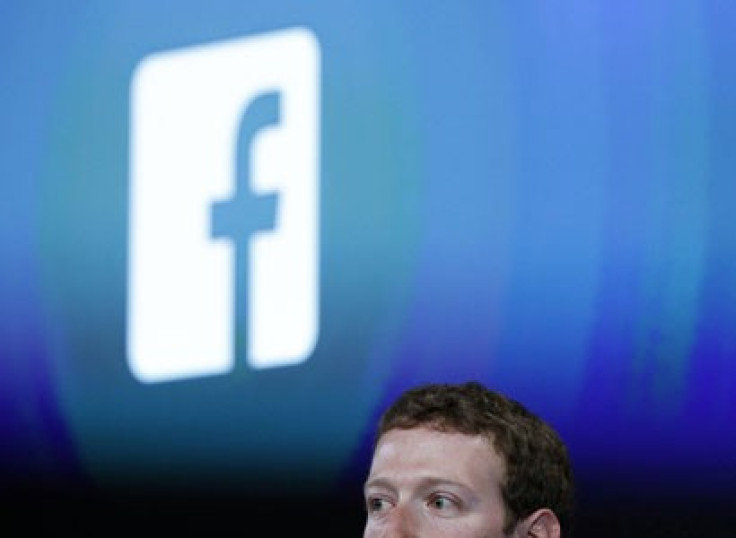Facebook Home: Is This the Future of Computing?
Technology editor David Gilbert looks at Facebook Home and decides if this is the future of technology, he wants nothing to do with it.

The much-rumoured 'Facebook Phone' has turned out to be little more than a blue skin you can slap on your old phone to allow Facebook discover even more information about what you and your friends like and use that information to sell even more ads.
Well at least that was my take from the launch of Facebook Home, the company's new 'app' which will transform a raft of popular Android phones into Facebook phones with the click of a button.
Mark Zuckerberg's take was somewhat different:
"Home, by putting people first, and then apps...is one of many small but meaningful changes in our relationship with technology over time."
As Dustin Curtis points out on his blog what Zuckerberg's speech during the launch was "the epitome of a vision statement", detailing the philosophy driving Facebook's work.
It may have been Zuckerberg's vision of the future of computing but should it come to pass, I want nothing to do with it.
Improving their lives
The 28-year-old CEO spoke about being amazed at the number of people accessing the internet every day and how "it's improving their lives."
He talked about the future and how in five to ten years' time we will "be living in a world where the majority of people who have a smartphone - a modern computing device - will have never seen in their lives what you and I call a computer."
But this doesn't mean Zuckerberg was equating Facebook Home with the "future of computing" I hear you cry. And you're right it wasn't. But he wasn't finished.
He went on to say the definition of what a computer is has yet to be defined for the five billion people who have yet to use one. And this is where Facebook come in.
"This is the kind of problem that Facebook, our culture and our community, are uniquely built to work on," the humble Zuckerberg said.
Where there are people there is Facebook
He believes that "people" will be at the centre of any new definition of what a computer is and where there are people, there is Facebook.
The problem here is that Zuckerberg believes Facebook should be the jumping-off point for how we use computers in the future. Everything should be linked to your Facebook account and who you know on Facebook.
That's great for Facebook, it's just not very good for the rest of us.
Yes his social network has over a billion members and yes it is a powerful tool for staying in touch with people you don't meet on a regular basis. But when you boil it down to its essence, what Facebook is, is a repository for users' personal details, photographs, videos and online habits.
It is this repository which Facebook leverages to sell adverts so that minutes after you mention you are engaged on Facebook, ads for jewellers, hotels, cake shops and even divorce lawyers will begin popping up on your timeline.
Post-PC era
Zuckerberg is correct on one point however. Computers as we have known them since the introduction of the personal PC in the 1980s will be a thing of the past.
As much as people want to say he was wrong, Steve Jobs' assertion that we are in a "Post PC era" is correct. Indeed it was his rival Bill Gates who first mooted the idea of a "PC Plus" age as far back as 1999.
From here on in computers will be devices we carry around in our pockets and handbags. Smartphones and tablets will be the window to the world for most people, and the thought of having a PC sitting in the corner of your living room gathering dust will seem as outmoded as getting software on physical discs.
The problem however is that filtering everything through the blue-tinged hue of Facebook will mean people only see and interact with a section of the internet.
Yes of course Facebook Home can be switched off and many platforms like iOS and Windows Phone will never use this skin. But considering the dominant position Android is in (currently holding a 70 percent smartphone market share worldwide) this probably doesn't matter.
Growth
Android is the platform which is growing the fastest in pretty much all areas of the world and with hundreds of cheap and cheerful Android smartphones coming onto the market, its growth in developing markets like Africa and Asia could be key to the growth of Facebook Home.
At the moment, many budget 'Android' smartphones are not Google-certified meaning they don't get access to the Google Play store for apps, music, books and videos.
However they will almost certainly be able to run Facebook Home meaning if Facebook wants to target these markets then the first and only experience of the internet millions - if not billions - of people experience would be through a Facebook filter.
While to say Facebook Home could potentially 'beome the internet' for millions of people might seem a tad dramatic, if this app gains traction and becomes the default homescreen on devices sold into markets that don't know any different, it's not entirly impossible.
And if that happens we may as well give up and go live in a cave.
© Copyright IBTimes 2024. All rights reserved.






